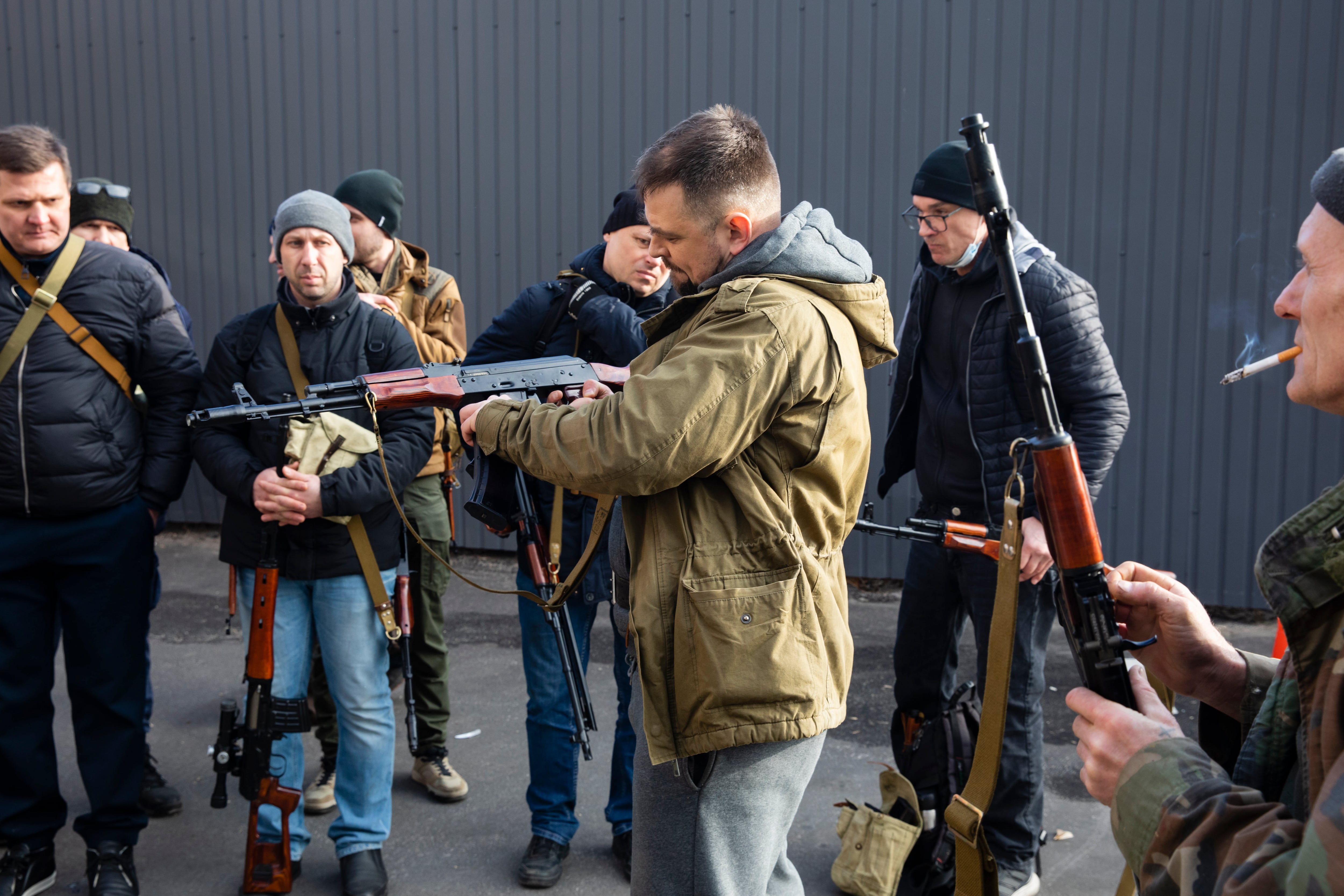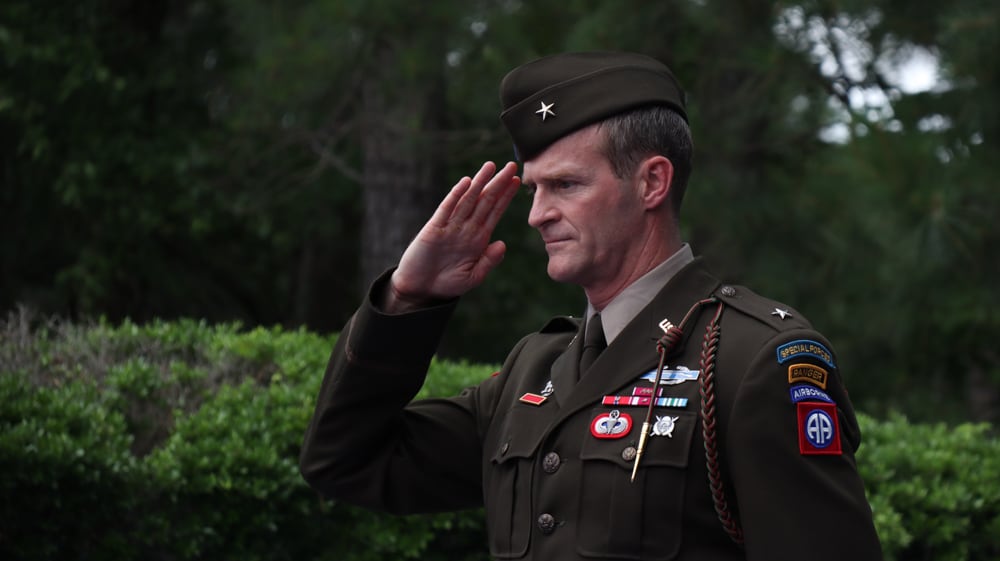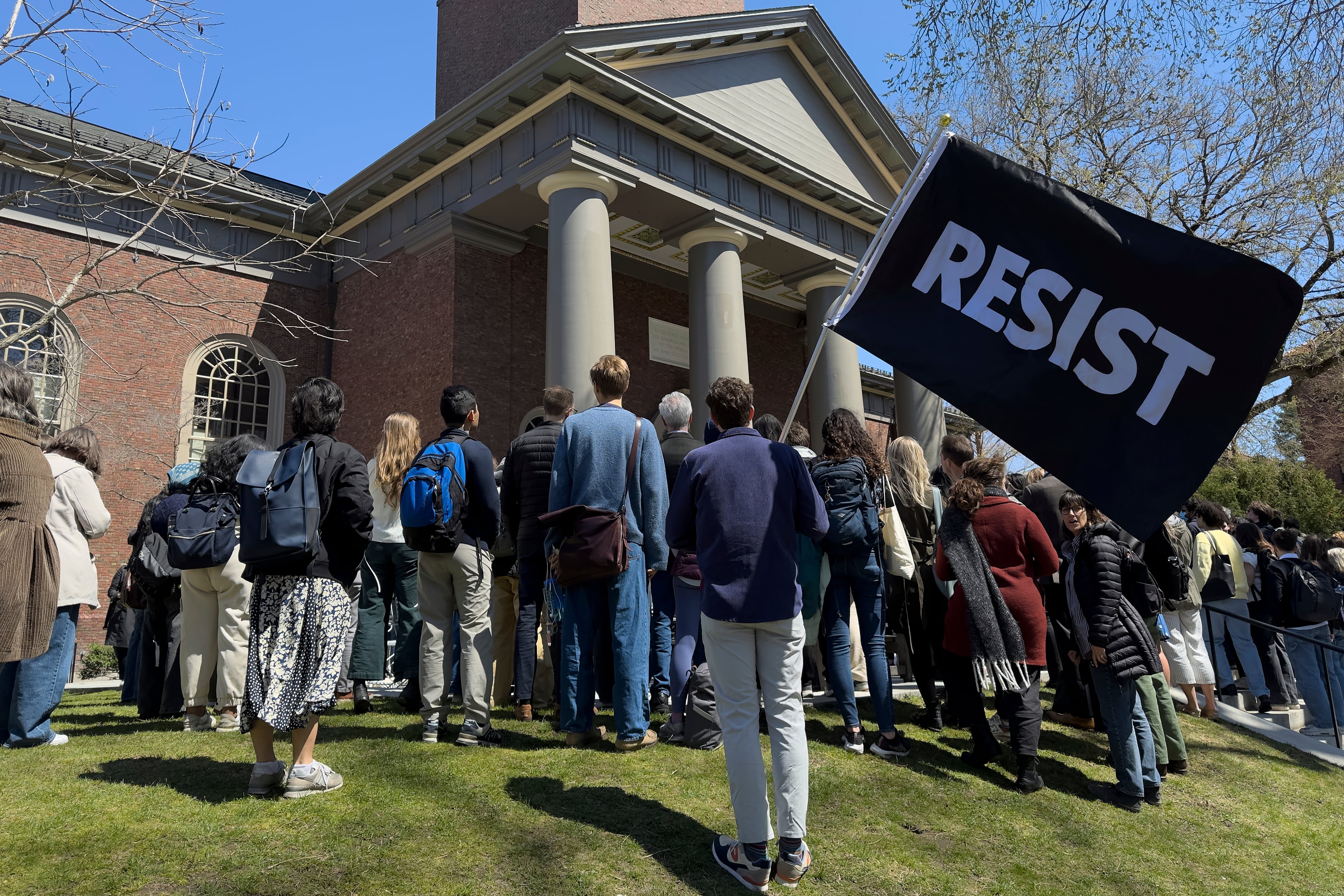Above all else, the commander of 1st Special Forces Command says he wants to see creativity out of the Army’s special operators — he thinks it’s what will provide them with an edge in the next fight in light of the rapid tactical innovations occurring on Ukraine’s battlefield.
Brig. Gen. Lawrence ”Gil” Ferguson, who spoke with Army Times, is a firm believer in an oft-repeated special operations truism: people are more important than hardware.
“Technology is not going to win the next fight,” he said. “The side that applies new technology with the most creativity and audacity is going to win.”
The one-star — who is currently impacted by Sen. Tommy Tuberville’s blanket hold on general officer promotions — knows what outside-the-box thinking and experience look like, because he embodies it.
Ferguson, who attended the Air Force Academy, departed the active duty Army after a brief tour as an infantry officer in the early 1990s, according to his hometown newspaper. He earned a graduate degree and taught at a Jackson, Mississippi prep school before earning his Special Forces tab as a National Guard officer assigned to the 20th Special Forces Group. He then returned to active duty with 7th Special Forces Group in late 2001.
“Creativity is a major component of what we’re looking for in the people that we recruit,” Ferguson said when asked about how to foster technological innovation at the small unit level. But in order to reap the benefits, he added, “We encourage a culture of creativity and innovation within the command.”
Ferguson eschews the traditional delineations between the Army special ops community’s three components — Special Forces, psychological operations and civil affairs — in favor of a synchronized approach that lets the talents of each group reinforce the others on the battlefield or when working with friendly nations before the next war begins.
As an example, he pointed at the success that Ukraine’s government has had combining effective irregular warfare operations with inspiring public messaging and stable governance in communities just behind the front lines. Although American and other NATO forces have played a role in preparing Ukraine for resistance (which Army Times detailed in the invasion’s first weeks), Ferguson noted that the willpower of the embattled country’s leaders and citizens has validated many key special operations concepts.
RELATED

Amid arguments on Capitol Hill and in the Pentagon over possible troop reductions to Army special operations (about which the one-star general declined to speak), Ferguson said that force structure may come to align with his integrated capabilities philosophy in the years ahead, too.
“We’re taking a hard look right now at our force structure and whether or not we need to make some changes, [though] we haven’t decided anything,” Ferguson said. “We’re continuing to test a variety of different ways to make sure we’re integrated to the best extent possible.”
He suggested that some of the changes under consideration may be tailored to specific regions of the globe.
“In some places, just based off the context of the environment, it’s easier to integrate than others,” Ferguson said, adding that the changes will come “as the operating environment’s going to require into the future.”
Davis Winkie covers the Army for Military Times. He studied history at Vanderbilt and UNC-Chapel Hill, and served five years in the Army Guard. His investigations earned the Society of Professional Journalists' 2023 Sunshine Award and consecutive Military Reporters and Editors honors, among others. Davis was also a 2022 Livingston Awards finalist.




